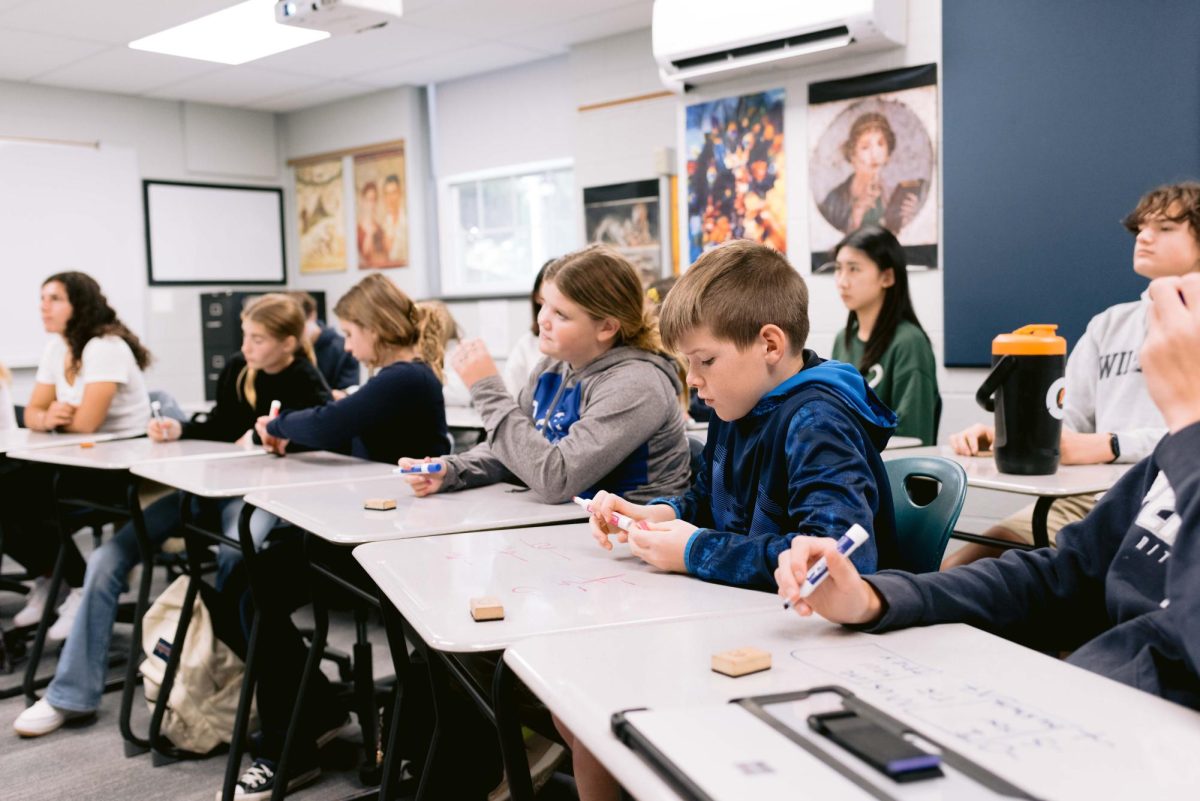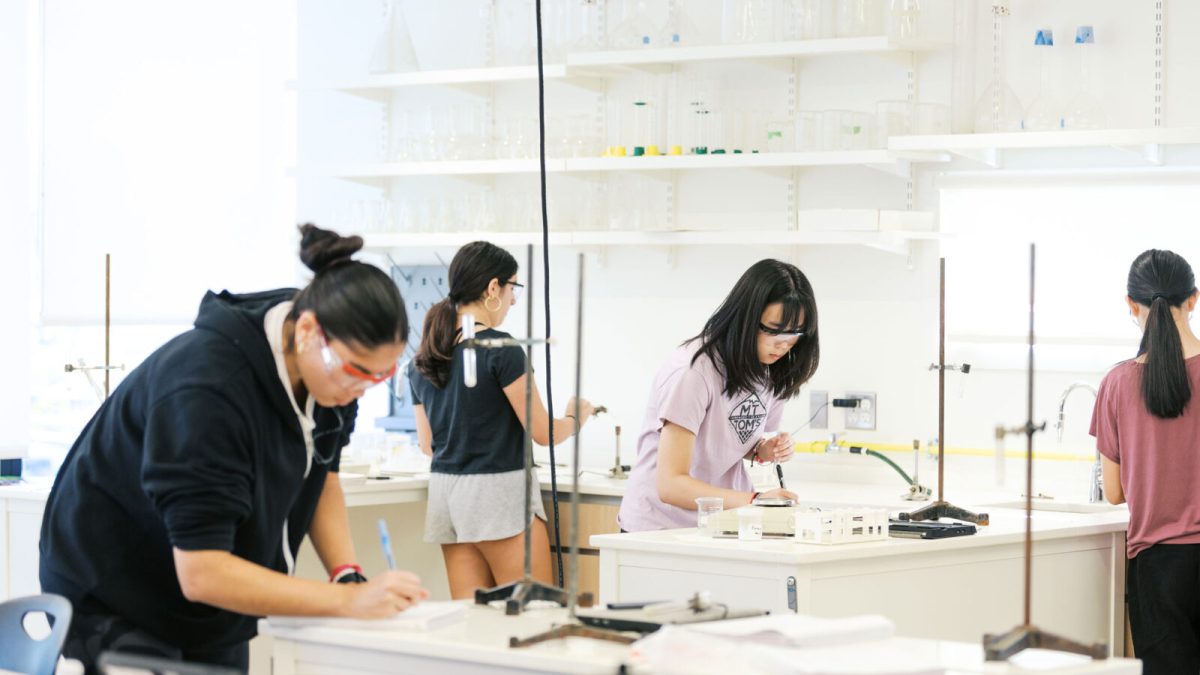Struggling to regain focus as school ramps up again? Here’s a guide to quickly get back on track and boost your academic productivity.
As students face the challenge of refocusing after summer break, strategies for re-establishing a productive routine become crucial. Now that students are back at Williston, with homework piling up and afternoon activities taking up time, it can be difficult for students to find ways to manage their workload effectively.
River Grady, a sophomore in Mem East, is struggling to manage the transition.
“Managing homework and extracurriculars is really hard,” River said. “As a student athlete, I play three varsity sports, so it’s very hard to find time.”
Research indicates that students often experience a decline in academic performance during summer break, known as “summer slide.” According to a study by the National Summer Learning Association (NSLA), students can lose up to 2.6 months of math and reading skills over the summer. This gap requires time to overcome when school resumes.
Not only this, many students’ sleep patterns change during the summer, with later bedtimes and wake times. This disruption in sleep routines can affect cognitive function and mood, making it harder for students to readjust to school schedules. So, if you realize you are forgetting this over break, don’t take it too harsh on yourself. Everything takes time.
Alex Tancrell-Fontaine, English teacher and Assistant Director of College Advising, says the best way to get out of summer habits is to slowly ease back into things.
Here are 5 key pointers to help you and the people around you:
Recognize your Priorities: Focus on high-priority items first and tackle less urgent tasks as time allows. This balances various aspects of life, such as work, family, and personal interests, giving you a sense of purpose and direction when making decisions.
“I’d take it day by day and remember why I’m here,” River said. “Everyone has their own reasons for being here—whether you’re an athlete or a student focused on education. We all have different goals, so the best feeling is to keep that mindset throughout the year.”
Laura Vachet, Director of Academic Support, has a detailed plan on how to make this happen.
“The first step is to really examine your school schedule and be conscious of all the commitments that are asked of you … which is a lot!” she said. “Our Veracross schedules really only reflect where you need to be during the school day, but there are after-school programs, lift, evening seminars to attend for classes, times you should carve out for resource center visits, college advising meetings, and so much more that is not addressed in that handy schedule.”
Students should set appointments in their phones, use a digital calendar of their choice, and keep a white board in their bedrooms to write reminders for the next day even after they become familiar with their routine,” she added. “Anything that takes the stress away from trying to keep it all straight in your head is a good strategy.”
Establish a Study Space: Designate a quiet, organized area for studying and completing assignments. Ensure it’s free from distractions and equipped with the materials you need.
River said she “finds using noise-canceling headphones and being in a quiet place to work helps a lot.”
Use Time Blocks: Allocate specific blocks of time for studying, homework, and breaks. The Pomodoro Technique, which involves working for 25 minutes followed by a five-minute break, can help maintain focus and prevent burnout.
“For me, going to resource centers at night definitely helps,” River said. “I use a paper agenda instead of an online one, which seems to work better for me.”
Vachet agrees with River’s decision to do what works for her.
“You should create a system that is realistic and works for you,” she said. “Your mind is in school mode during the day, so I would resist the urge to blow off free blocks and only do work in study hall hours. It can take twice as long to do the same assignment with a tired mind and body. Choose ahead of time which free blocks you will set aside to work ahead rather than cramming in what is due the next block. You will earn yourself some free blocks to hit up Dunkies because you are all caught up.”
Practice Self-Care: Ensure you’re getting enough sleep, eating well, and engaging in regular physical activity. Good physical health supports mental clarity and concentration.
Ms. Vachet clarifies that “self-care” does not always mean a day at the spa. Instead, it is addressing your responsibilities through “establishing routines and systems that contribute to your wellbeing.”
“All brains need sleep for peak performance of cognitive processing and memory storage,” she said. “Our bodies need sleep to heal and grow. Think of sleep as the same as shutting down your phone or Surface so your body can do all the necessary updates for maximum functioning.”
This advice is supported also by Ms. TF.
“I think the best way to get out of summer habits is to slowly ease back into things,” she said. “It is hard to go from zero to one hundred, so it takes time and work from adults and students alike to build back endurance with the academic schedule and workload.”
In the classroom, Ms. TF believes that it is important to stay active. Specifically, she “tries to mix [her] class with a balance of getting up out of seats and moving and more traditional things like group work and note-taking.”
Reflect and Adjust: Regularly assess what’s working and what isn’t in your routine. Be willing to adjust your strategies and experiment with new approaches to find what best supports your productivity.
As for motivation, Ms. Vachet encourages students to stick to the 10 minute rule.
“Initiation is half the battle, so plan first,” she said. “Decide what you will work on, set a small goal of completing a few questions and commit to 10 minutes straight to meet that mini-goal. After 10 minutes, take a tiny break to get up, then repeat. You will soon find yourself locked in because you are experiencing success. Extend the time to 20 or 30 minutes now between breaks to help reset your mind and maximize work efficiency.”





















